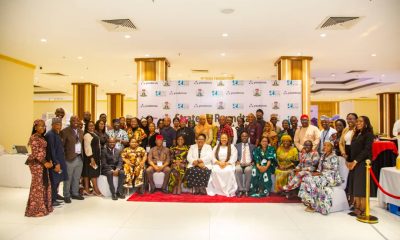People
Benue First Lady Celebrates 50th Birthday Anniversary in Style
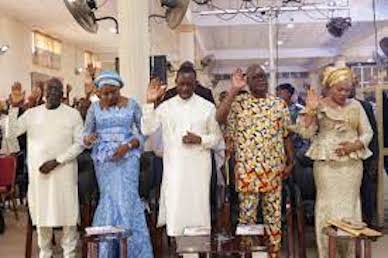
By David Torough
The Benue State First Lady, Dr. Mrs. Eunice Ortom on Saturday celebrated her golden jubilee of 50th birthday anniversary with people from all walks of life in attendance.
The birthday anniversary came with a lot of significance especially as it is also the last birthday in office as first lady.
The birthday which began with a thanksgiving service at the Redeemed Christian Church of God headquarters on Gboko Road in Makurdi, the Christian family led by the leadership of the Christian Association of Nigeria (CAN), the Pentecostal Fellowship of Nigeria (PFN) and others, showered prayers of blessings upon the Governor’s family.
The prayers also specifically solicited the victorious mighty right hand of God Almighty upon Benue State in protection, prosperity and right direction under the stewardship of Ortom and the celebrant, Eunice, as Governor and First Lady.
Various forms of presentations of goodwill were made by children, women and organisations which are beneficiaries of the philanthropic works of the Benue State First Lady, through her Charity Foundation, Eunice Spring of Life Foundation (ESLF).
Messages of goodwill were given by National Chairman of the Peoples Democratic Party (PDP), His Excellency, Sen. Dr. Iyorchia Ayu Vice Presidential Candidate of the PDP and Governor of Delta State, Dr. Ifeanyi Okowa; the Tor Tiv, His Royal Majesty, Prof. James Ayatse and his wife, with Governor Ortom and wife delivering a message of thanksgiving to God Almighty as well as the people of Benue State and their friends and well wishers.
Dignitaries who graced the occasion included, Benue State Deputy Governor, Engr. Benson Abounu, and his wife, Justice Mary Abounu; Governorship Candidate of the PDP in Benue and Speaker of the state Assembly, Engr. Titus Tyoapine Uba and his wife, Mrs. Pauline Uba; Deputy Governorship Candidate of the party, Sir John Ngbede ; Acting State Chairman of the PDP, Hon. Isaac Mffo and members of the State Working Committee of the party and immediate past State Chairman of the All Progressives Congress (APC) in the state, Comrade Abba Yaro.
Also present were First Lady of Taraba State, Her Excellency, Barr. Mrs. Ngunan Darius-Ishyaku; His Royal Majesty, the Och’Idoma, Pst. Dr. John Elaigwu Odogbo and his wife; Senators Emmanuel Yisa Orker Jev of Benue North-West and Patrick Abba Moro of Benue South; House of Representatives and State Assembly members, former Chairman of the EFCC, Dr. Mrs. Mzamber Farida Waziri, members of the Diplomatic community.
National and State Assembly candidates of the PDP for the 2023 elections, Executive Chairmen of local government councils in the state and dignitaries from all walks of life were also on hand to celebrate with the Ortoms.
The birthday celebration was climaxed with an elaborate reception at the Benue people’s House, which was attended by Wives of Governors of Taraba, Nasarawa and the Inspector General of Police.
Mrs Ortom was the following hosted by the Nongov Women Development Association at Gbajimba, the Guma Local Government headquarters, her immediate community to another Thanksgiving service. The event was followed by a reception where the celebrant granted N25million to 58 women in various empowerment programmes.
Speakers at the ceremony extolled the celebrant for her philanthropic gestures na durhged her to keep the moment in the various intervention schemes for the less privileged through her pet project -Eunice Spring of Life Foundation(ESPLF)
FEATURES
Miss Valdeen N. Pierre Honored with Humanitarian Award at the 2025 National Humanitarian Summit
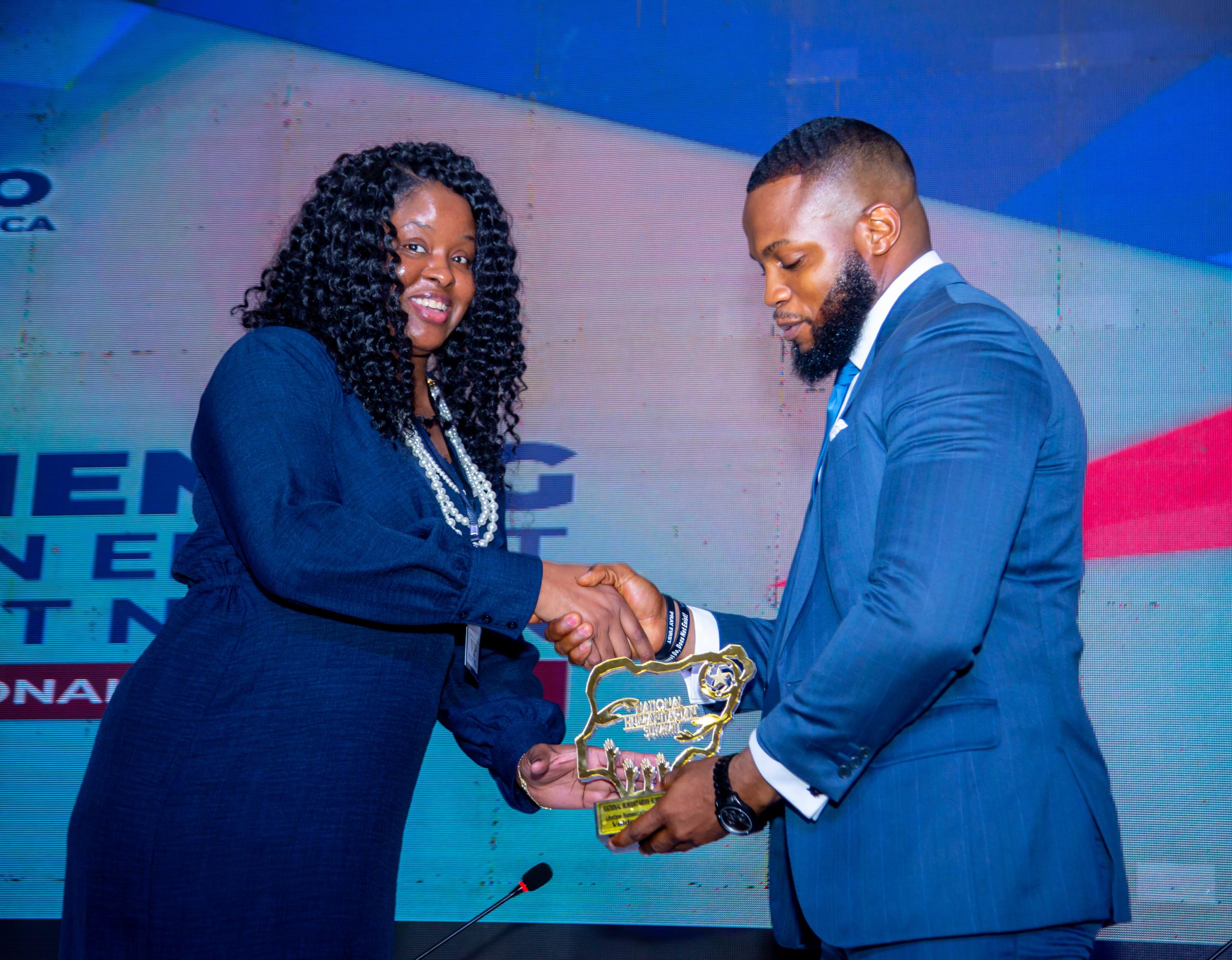
In a remarkable celebration of humanitarian service and strategic collaboration, Miss Valdeen Pierre , Country Director – United State ; A New Thing International foundation ; was honored with the Humanitarian Award at the prestigious National Humanitarian Summit 2025, held at the Shehu Musa Yar’Adua Centre, Abuja.
The award recognizes Miss Pierre’s and other humanitarian leaders unwavering commitment to humanitarian causes, particularly her collaboration with A New Thing International Foundation on the SOBE Project (School Outreach for Better Education) across Sokoto, Kebbi, Plateau, Niger States and the FCT.
Her efforts have significantly contributed to improving access to quality education and raising awareness about social vices among schoolchildren in underserved regions.The summit drew an esteemed audience comprising multiple stakeholders across the humanitarian value chain, including the Minister of Youth Development, Minister of Humanitarian Affairs, Special Assistant to the President on Humanitarian Affairs, the First Lady of Kwara State, First Lady of Zamfara State, representatives of United Nations Humanitarian Agencies, NGOs, INGOs, and other key players in the humanitarian sector.
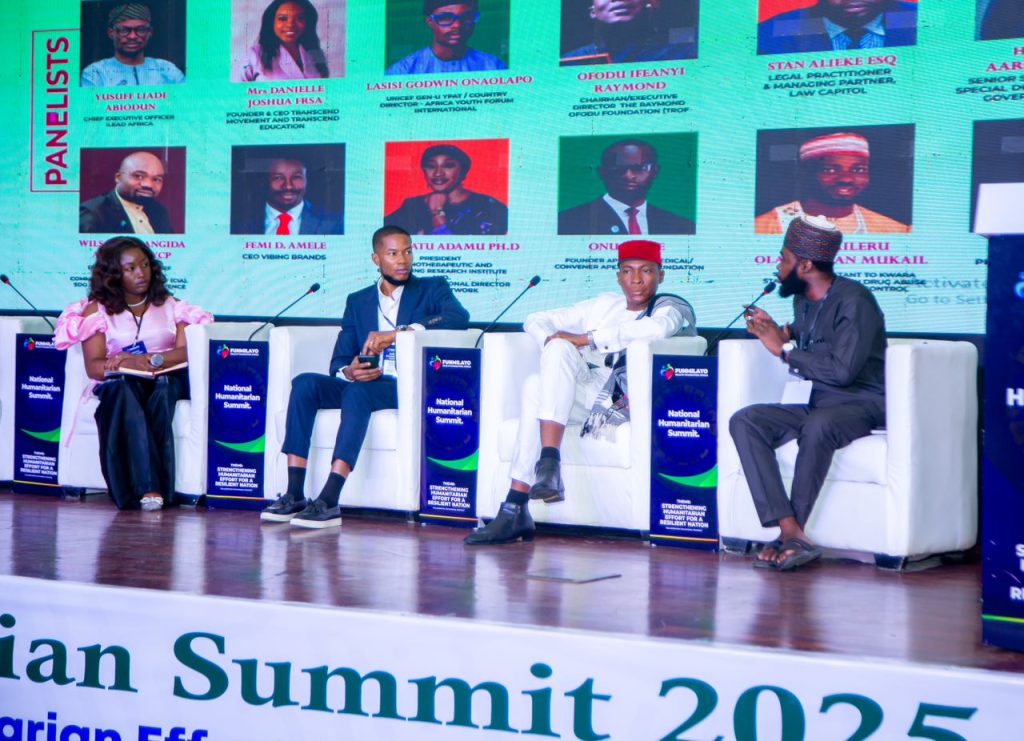
The event featured a vibrant mix of panel discussions, keynote addresses, and the unveiling of strategic development plans aimed at strengthening collaborative impact across Nigeria and beyond.
In his vote of thanks, Ambassador Kenneth Anetor, the Executive Director of A New Thing International Foundation and Chairman of the Planning Committee, delivered a passionate closing speech. He commended the honorees and stakeholders, issuing a clarion call for deeper collaboration and renewed commitment to advancing strategic organizational development goals. His rousing remarks inspired attendees to rise to the moment and forge stronger partnerships for sustainable impact.
Ambassador Anetor also extended profound appreciation to the summit’s convener, Ambassador Michael Timothy, of the Funmilayo Health Foundation Africa, for the opportunity to serve as Chairman of the Planning Committee, and for creating a platform that celebrates excellence in service and drives transformative conversations in humanitarian work.
The National Humanitarian Summit 2025 stands as a milestone in Nigeria’s journey toward inclusive, people-centered development, with Miss Valdeen Pierre’s recognition serving as a beacon of hope and an example of the power of global partnership in humanitarian efforts.
For media inquiries , information, or donations please contact:
Email: anewthingworldwide@gmail.com
Phone: +2347037474611
Website: www.antworldwide@gmail.com
OPINION
Psychological Appeal to Ex Emir Aminu Ado Bayero
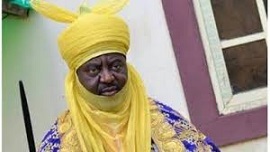
By John Egbeazien Oshodi
The controversy began with the reinstatement of Muhammadu Sanusi II, as Emir by Governor Abba Yusuf, following the repeal of a law that had previously led to Sanusi’s deposition. Amidst these legal proceedings, your return to Kano and the subsequent tensions highlight the complexities of political and traditional leadership dynamics.
Dear Ex Emir Bayero,
In the midst of the current political and legal turmoil, it is essential to pause and reflect on the principles of honor, integrity, and wisdom that have long been associated with your esteemed lineage.
As a leader revered for your adherence to rules and traditions, you have the unique opportunity to exemplify the highest standards of leadership in these challenging times. I write to you as a native Nigerian, deeply invested in the peace and prosperity of our great nation. We have never met, and I have no allegiance to any name here.A Kano state high court has issued an order restraining you from presenting yourself as the Emir of Kano pending the determination of the ongoing suit. This legal battle is not just a matter of personal contention but a significant event that impacts the peace and stability of the entire Kano region. The court’s mandate, along with the police securing the Nasarawa palace, underscores the gravity of the situation and the need for compliance with judicial rulings.
The controversy began with the reinstatement of Muhammadu Sanusi II, as Emir by Governor Abba Yusuf, following the repeal of a law that had previously led to Sanusi’s deposition. Amidst these legal proceedings, your return to Kano and the subsequent tensions highlight the complexities of political and traditional leadership dynamics.
It is reported that former governor and APC chairman Abdullahi Umar Ganduje, who played a role in your initial appointment, has been utilizing various interests and means, including a controversial ex parte order issued by Justice Mohammed Liman from the United States, to support your position. However, this action contradicts Nigerian judiciary policies and has raised significant concerns about federal overreach and the potential misuse of power.
As a respected figure, the media has consistently described you as a man of honor and a leader who follows rules. This is a moment to reaffirm these qualities. By acting with integrity and wisdom, you can set a powerful example for your followers and the broader community. It is crucial to recognize that this matter falls within the jurisdiction of the state government and judiciary. The involvement of federal forces, including the military and police, further complicates the situation and risks escalating tensions.
Consider the stance of Alhaji Aliyu Ibrahim Abdulkadir, the former Emir of Gaya, who has accepted his removal as an act of God and expressed no intention to challenge the decision in court. His dignified acceptance serves as a powerful testament to the strength of character and resilience. By choosing a similar path, you can help ease the current tensions and contribute to the restoration of peace and stability in Kano.
Governor Yusuf has been advised by this writer in an earlier publication that strategic psychological approaches be employed in dealing with the situation. By gradually diminishing the resources and authority at your disposal, it becomes clear that the influence of external political figures like Ganduje cannot override the unified resolve of the state. The reality of diminishing power, finances, and resources will inevitably set in, and it is wise to acknowledge this shift and act accordingly.
Governor Yusuf has appealed to President Tinubu to relocate you from Kano to mitigate the threat to peace. This plea underscores the need for a resolution that prioritizes the well-being of the people of Kano over political or personal interests. You do not need to wait for Tinubu; your cooperation in this regard would not only demonstrate your commitment to peace but also reinforce the respect and admiration that the public holds for you.
Ex Emir Bayero, this is a pivotal moment that calls for a leader of your stature to rise above the fray and act in the best interests of the community. You are caught between two warring political figures, Yusuf and Ganduje. By listening to the voice of reason and adhering to the principles of justice and honor, you can help navigate this crisis towards a peaceful resolution. Your actions today will not only define your legacy but also set a precedent for future generations.
The now troubled situation, exacerbated by political heavyweights like Ganduje, stands powerless against the unified resolve of the people and the enduring spirit of the state. The recurrent misuse of federal authority, including judicial bias, coercive policing, and military intervention, cannot sustain one individual’s ambitions against the democratic will of the entire state.
By aligning with the people and upholding democratic ideals, you can transcend political discord and advocate for enduring principles of fairness and righteousness. The people of Kano will honor your legacy if you transcend political turmoil and exemplify leadership grounded in justice and equity.
May wisdom and peace guide your decisions. May Allah bless you now and in the future Sincerely.
Professor John Egbeazien Oshodi, born in Uromi, Edo State, Nigeria, is an American-based police and prison scientist, forensic psychologist, public policy psychologist, and legal psychologist. He’s a government advisor on forensic-clinical psychological services in the USA and the founder of the Dr. John Egbeazien Oshodi Foundation for Psychological Health. With a significant role in introducing forensic psychology to Nigeria through N.U.C. and Nasarawa State University, he’s also a former Secretary-General of the Nigeria Psychological Association. He’s taught at esteemed institutions like Florida Memorial University, Florida International University, Nova Southeastern University, and more, and is currently an online faculty member at Weldios University, Nexus International University, and Walden University.
People
UK Life: Where Love Is Hard And Sex Is Easy

Virtually every week, a Nigerian abroad comes out on social media to lament the scarcity of partners for meaningful romantic relationships. In recent times, we have had a more frequent outcry from women. Not just average women but beautiful and classy ones. What do you think is the problem? Are the men going extinct? Let’s dive into this topic from a UK experience.
Have you ever felt lonely despite being in a very crowded space? It is a weird feeling.
Everybody wants to help and at the same time, nobody wants to help. This is what dating in the United Kingdom seems like.Here are some reasons why it might be challenging finding a partner abroad:
(1) Culture shock:
The United Kingdom is a multicultural society.
You get to meet Indians, Africans, Chinese, Pakistanis, Europeans, and generally people from different works of life. Their belief systems, behaviours, and different approach to issues are different. People naturally avoid what they find strange and this could affect romantic relationships.(2) Ethnic Division:
In most cities in the UK, people don’t mix especially outside work. The people have doctorate degrees in ‘minding their businesses’. The Chinese roll with the Chinese, Indians to Indians and Nigerians roll with their own. People just feel more comfortable with their own.
(3) Too fast, too busy:
Life in the UK is just too busy and fast especially if you are a fresh immigrant. You might have to deal with the rigours of work and school as they run concurrently. These two engagements might make a whole year look like 6 months. Oftentimes, romantic relationships take a secondary position. Some people would pick shifts over romantic dates because that is what pays the bills.
(4) Historical concerns:
Before the tier 4 visas became popular, most Africans saw the locals as keys to their stay in the country. Relationships have always been a means to an end in the UK. A selfish end so to speak. The nefarious activities of internet fraudsters have always complicated interracial relationships. For this reason, most tier 4 visa holders or citizens are wary of new entrants.
A lady who holds a British passport or Tier 2 visa might doubt the love interest of a suitor holding a tourist or student visa. There is widespread distrust in the country and nobody wants to be used as a ladder to step up. Consequently, some potential good men slip under the radar.
(5) Stereotype:
Nigerians don’t have the best reputation in the UK. This is related to the previous point made. This has led to hasty generalisation and unwarranted assumptions. On dating sites/apps, some people will not talk to you because you are a Nigerian. This might be due to an adverse experience or an ordeal told by a friend, or family member about their experience with a Nigerian.
(6) Ego:
The UK has so many successful women. Most of them become big-headed as career success and financial breakthroughs come. They tend to desire men in or above their social/economic class. But African men in their supposed class fear women like them because of issues around control. Men don’t want to travel on a ship with two captains. Before you know it, one woman is still single at 40 despite her beauty and achievements.
(7) Small population of Nigerians:
Despite the Japa Syndrome, Nigerians are in the minority in the UK. Out of a population of over 67 million people, Nigerians account for just 0.5% which is 271,390 in England and Wales. Most Nigerians come to the UK married. These two factors limit the available options on who to date. Even if you want to consider someone outside your ethnic background, they might not be interested in you.
(8) Racism:
Due to the sensitivity of this topic, I will not dwell too much on it. It has been criminalized, but it is still what it is. Coloured people are not really in demand except for people who just want to briefly explore. Call that jungle fever!
(9) Lack of intentional efforts:
In the UK, you have to consciously work towards getting married. Attend social gatherings, meet people, shoot your shots, join dating apps, join churches, approach people for relationship referrals, and never give up when you hear a ‘no’. You might just be lucky the next time you try.
(10) Marriage isn’t a big deal:
People in the UK are not so big on marriage compared to their counterparts in Africa. I have a colleague who has been engaged for years; nothing is happening and nobody is under pressure. In Nigeria, people will ask questions like “Are you Froddo in the ‘Lord of the Rings’?”
Generally, people just live together as partners for years and have kids together without being married. An African might frown at this on cultural and religious grounds.
(10a) Accent:
Relationships start with active and good communication. In the UK, some accents are just too complicated to understand. This makes verbal communication stressful. Most people become easily uninterested in those that don’t speak like them.
(10b) Indiscriminate s*x:
Due to loneliness and cold weather, most people just want to have fun with no strings attached. They want to experience that crazy feeling of intimacy for the moment. Since society doesn’t attach importance to ‘body counts’, people jump on as many beds as possible. This is paramount amongst single parents. Single mothers just want to drink alcohol on Friday nights and have sx without entanglements. They tend to enjoy their sxual freedom and conclude that serious relationships might take that away. If care isn’t taken, a woman might wake up to realize that she has had more sxual partners than a full-time prostitute at the end of the year. Sx is easy, love is hard.
These are some of the reasons I have been able to come up with. I’m pretty sure they could be extended.
Conclusion
It is possible to find love in the UK, although it is tricky. The key is being very intentional about the love search. From my personal research and experience, I believe the most effective way is through referrals. When you meet nice people, tell them to introduce you to their like-minded single friends or family members. Make your intentions clear. This is equivalent to getting references for a job application. Additionally, expand your social circles, and join African churches with huge members. Some pastors take it upon themselves to matchmake people and it works. Dating apps might not be the most ideal place to seek a meaningful relationship, but we never say never.


